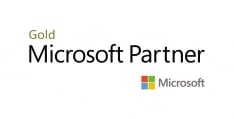Lahore is the capital city of the province of Punjab in Pakistan. It is the 16th biggest city in the world. Lahore has an estimated population of around 10.1 million residents. The unemployment rate in Pakistan did not change between 2013 and 2014 as it remained at 6%. Between 1985 and 2014 the unemployment rate averaged around 5.5 percent. It reach a national high in 2002 when it hit 7.8 percent of the total labour work force out of work. The lowest rate ever recorded in Pakistan was 3.1 percent in the final quarter of 1987. Lahore is thought to be the educational centre of Pakistan as it has more higher education facilities than any other city in the country. It is home to the Government College Lahore, University of the Punjab, Kinnaird College and the University of Engineering and Technology.
Free Wi-Fi
To make sure you’re always connected we offer completely free and easy to access wi-fi.








































 Back to course information
Back to course information




 If you wish to make any changes to your course, please
If you wish to make any changes to your course, please

